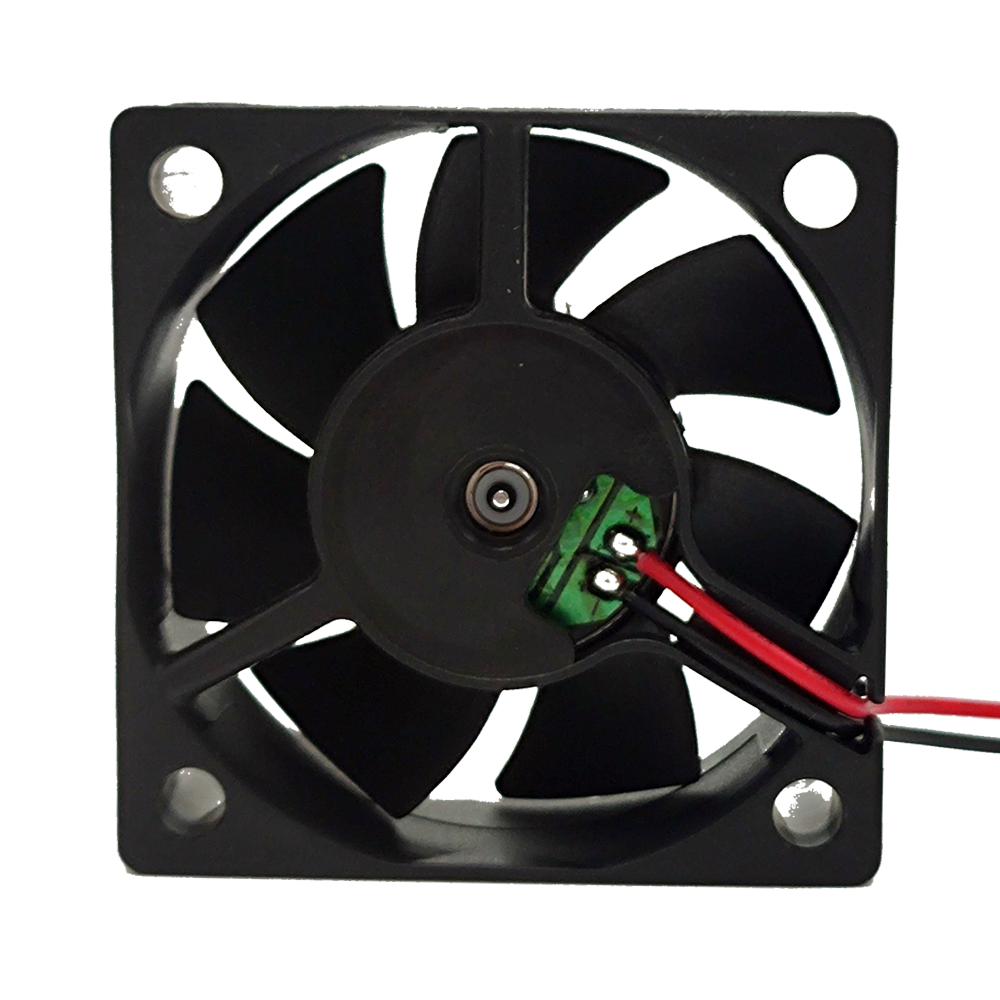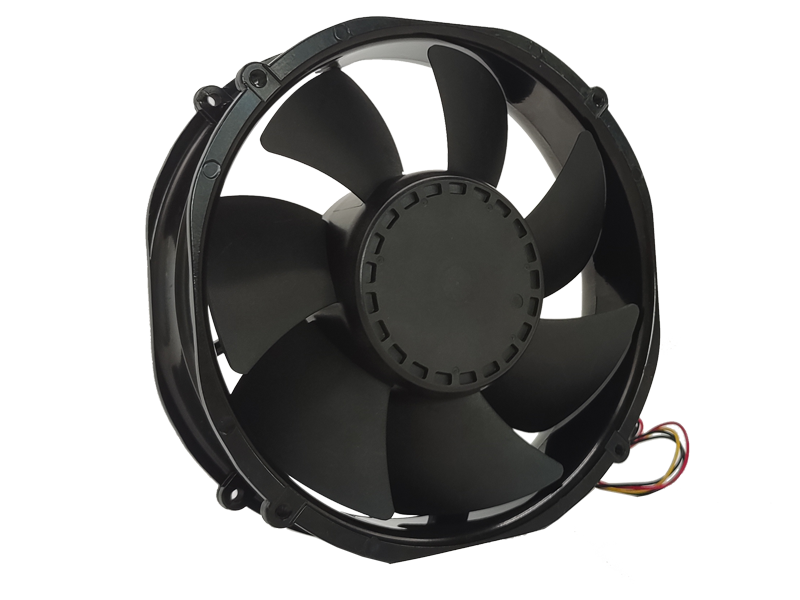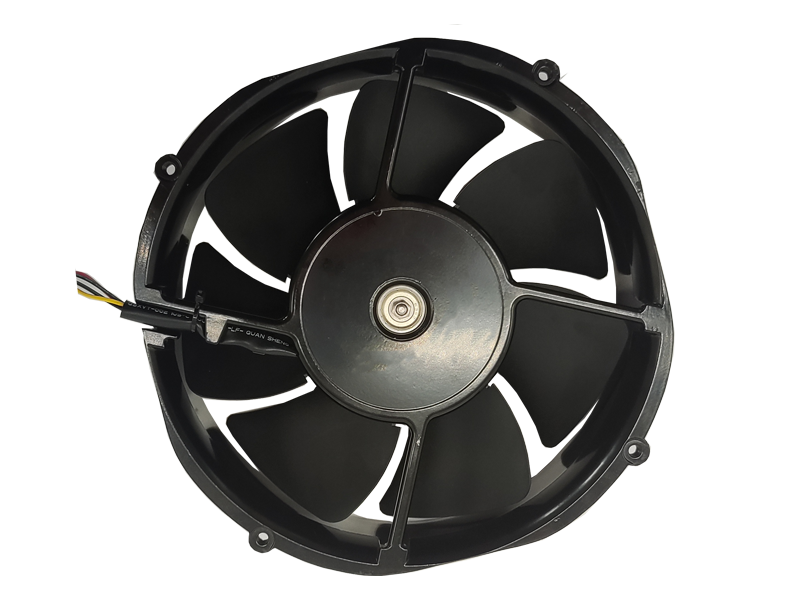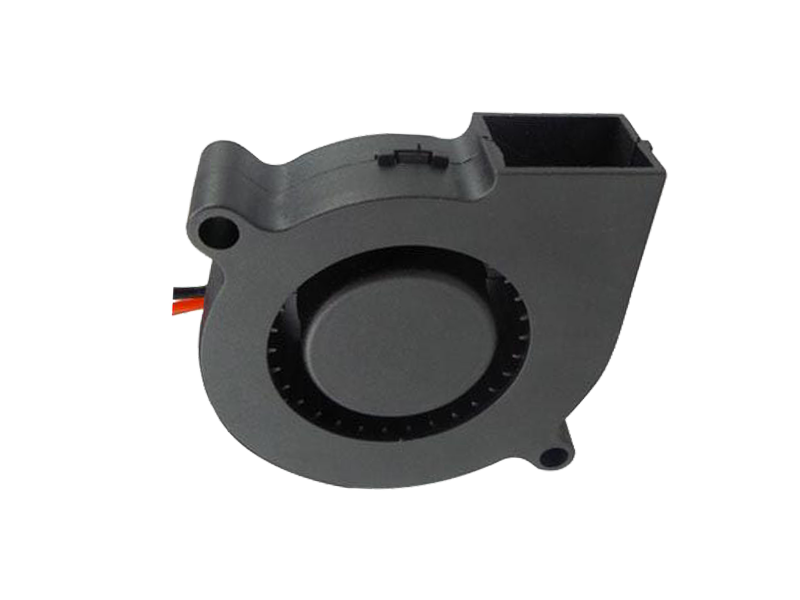Industrial fans play a crucial role in a variety of industries, from manufacturing to agriculture and HVAC systems. These fans are designed to provide effective ventilation, cooling, and air circulation, ensuring that large spaces or machinery operate at optimal conditions. As industries continue to evolve, so too must the technology behind the fans that support them. This article explores the evolution of industrial fans, focusing on product design, efficiency improvements, and the role they play in modern industrial environments.
1. The Basic Purpose and Functionality of Industrial Fans
At its core, an industrial fan is a mechanical device used to move air and gases through ventilation systems or to cool machines. These fans are vital in preventing overheating of machines and maintaining air quality within large spaces. Industrial fans are engineered to handle high volumes of air with high velocity and are designed to withstand harsh environments where temperatures, humidity, and airborne contaminants can vary significantly.
2. Key Features and Specifications of Industrial Fans
The effectiveness of an industrial fan is determined by several key features and specifications that impact its performance:
Airflow Capacity
The airflow capacity of an industrial fan is measured in cubic feet per minute (CFM) or liters per second (L/s). It is an essential specification to consider when choosing a fan for specific industrial applications. Fans with higher CFM ratings are ideal for large spaces, while smaller CFM ratings are more suitable for confined areas where a more focused airflow is necessary.
Fan Speed and Power Consumption
Industrial fans typically operate at high speeds to move a substantial amount of air. The speed of a fan, often measured in revolutions per minute (RPM), is a direct factor in its cooling and ventilation efficiency. However, manufacturers are increasingly concerned with energy efficiency and environmental sustainability. Today’s industrial fans are designed to reduce energy consumption while maintaining high airflow.
Durability and Material Quality
Industrial fans are subject to constant wear and tear. They must be built to last under continuous operation in harsh conditions, such as extreme temperatures or exposure to chemicals and dust. High-quality materials, such as corrosion-resistant metals and advanced composite materials, ensure that industrial fans remain durable and reliable over time.
Noise Levels
The noise level generated by industrial fans is an important consideration, especially in environments where noise pollution is a concern. Manufacturers have made significant strides in reducing the noise levels of industrial fans, ensuring that they operate quietly without compromising on airflow efficiency.
3. The Evolution of Industrial Fan Design
As industries have become more complex, the need for industrial fans that provide higher performance and greater efficiency has intensified. Over time, the design and technology of these fans have evolved significantly.
Incorporating Variable Speed Drives (VSD)
One of the most notable developments in industrial fan design is the introduction of variable speed drives (VSD). Traditional fans operated at fixed speeds, but with the advent of VSD technology, fans can now adjust their speeds according to real-time requirements. This allows businesses to optimize energy consumption and enhance the overall efficiency of their ventilation systems. VSDs have become a game-changer in industries where energy efficiency is a top priority.
Smart Technology Integration
With the rise of the Industrial Internet of Things (IIoT), industrial fans are now equipped with smart sensors that can monitor and adjust fan performance in real-time. These sensors can track factors like temperature, humidity, and airflow, providing operators with valuable data that allows for more effective fan control and maintenance. In some cases, these fans can even be remotely monitored, enabling businesses to perform predictive maintenance and reduce downtime.
High-Efficiency Fans
The demand for energy-efficient equipment has led to the development of high-efficiency industrial fans. These fans are designed with advanced aerodynamic blades and motors that minimize energy loss while maximizing airflow. The use of energy-efficient materials and the optimization of fan blades have allowed industrial fans to significantly reduce energy consumption compared to older models.
4. Applications of Industrial Fans
Industrial fans are used in a wide range of applications, each of which demands specific features and capabilities. Here are a few examples:
Manufacturing and Processing Plants
In manufacturing and processing plants, fans are used to control the temperature and airflow in production areas. Cooling fans help prevent overheating of machinery, while ventilation fans ensure the removal of fumes, dust, and other airborne contaminants. Without these fans, production processes could be slowed, leading to inefficiencies and potential equipment failure.
HVAC Systems
Industrial fans are a critical component of HVAC (heating, ventilation, and air conditioning) systems in large buildings, factories, and data centers. They maintain a consistent airflow and temperature control throughout the building. In data centers, for example, maintaining optimal temperatures is essential to keep server rooms cool and prevent downtime caused by overheating.
Agriculture
In agriculture, large-scale fans are often used in greenhouses to promote proper air circulation, humidity control, and temperature regulation. This is especially important for crops that require specific environmental conditions to grow efficiently.
Waste Management and Environmental Protection
Industrial fans are also used in waste management facilities to ventilate and control the flow of gases, odors, and dust. They play an essential role in creating a safe and efficient working environment by keeping the air clean and breathable.
5. Future Trends in Industrial Fan Design
As industries continue to push the boundaries of technology, the design and functionality of industrial fans will evolve to meet new demands:
Sustainability

Environmental concerns are driving the development of more sustainable industrial fans. Manufacturers are investing in creating fans that use less energy, are built from recyclable materials, and produce less noise pollution.
Noise Reduction Technology
Reducing the noise produced by industrial fans will continue to be a priority. Fans designed with noise reduction features, such as vibration isolation and soundproofing materials, will become more common.
Advanced Monitoring and Control
Future industrial fans will be equipped with even more advanced monitoring systems that will allow for greater precision in controlling airflow and energy consumption. The integration of artificial intelligence (AI) and machine learning could enable industrial fans to optimize their performance autonomously, leading to improved efficiency.
6. Conclusion
Industrial fans are a cornerstone of modern industrial operations, ensuring that machinery operates effectively and that air quality is maintained in a variety of environments. Over time, the design of these fans has evolved to meet increasing demands for energy efficiency, durability, and smart technology integration. As industries continue to innovate, industrial fans will remain at the heart of operations, helping businesses optimize their energy usage, reduce costs, and improve the overall efficiency of their systems.
Recommended Products

The main purpose:Car charging station

The main purpose:Car charging station

The main purpose:Electronic refrigerators, water dispensers, direct drinking machines, inverter power supplies
Address:No. 4137, Longgang Avenue (Henggang Section), Henggang Community, Henggang Street, Longgang District, Shenzhen
hotline:13530005572(Chen)15112579390(Li)


Welcome all friends to come for consultation and negotiation.
Copyright 2024 @ Shenzhen Youneng Xinyuan Electronics Co., Ltd.,(industrial fans,industrial blowers,axial fans,cooling fans manufacturer,centrifugal fans,ac cooling fans,dc cooling fans)